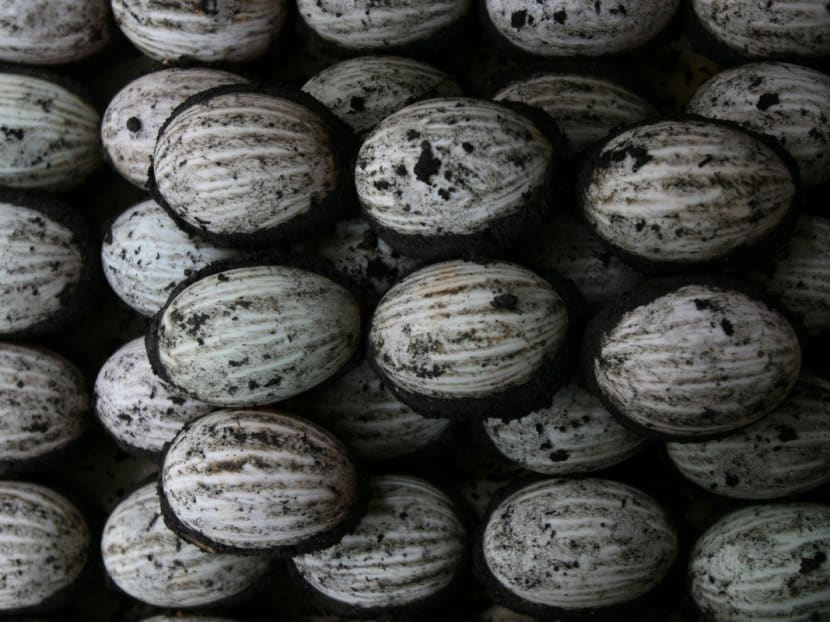Chinese internet users cry fowl after Italy labels preserved eggs inedible
SICILY (Italy) — Italian police confiscated 800 preserved eggs from two restaurants in Sicily earlier this month, labelling them as “unfit for human consumption”.

In a statement, Italy’s health ministry said the eggs were not fit for human consumption and a violation of European Union import laws.
SICILY (Italy) — Italian police confiscated 800 preserved eggs from two restaurants in Sicily earlier this month, labelling them as “unfit for human consumption”.
Two Chinese restaurant owners in the commune of Misterbianco, outside the town of Catania, were detained.
In a statement dated April 9, Italy’s health ministry said the eggs were not fit for human consumption and a violation of European Union import laws.
Most of the confiscated goods were century eggs, while some were salted duck eggs. Century eggs are a traditional Chinese delicacy made by burying eggs in a mixture of clay, ash, salt and lime for days or months until they develop a distinctive pungent aroma and salty taste.
Many Chinese internet users took to social media to say that foreigners did not understand the cuisine.
“Century eggs are such a delicacy, how could they be unfit for human consumption,” commented one person microblogging platform Weibo. Another wrote: “Foreigners are clueless when it comes to food.”
Other Chinese social media users were quick to dismiss Italian food.
“What do they think of canned herring?” read one top-rated comment on Weibo.
While another user claimed that Italy’s food safety standards were better than China’s spotty track record of food hygiene scandals: “These kinds of foods carry a high level of harmful substances and do not reach the health and safety standards of their country. Just use your brain, do not be meaninglessly angry.”
It’s not the first time century eggs have been portrayed in a bad light.
In 2018, the Disgusting Food Museum in Malmö, Sweden, included century eggs in its exhibition of 80 of the world’s most disgusting foods (other Chinese delicacies included stinky tofu, bull penis and spicy rabbit head).
In 2011, CNN voted century eggs the most revolting food of the year.
Century eggs can be eaten on their own, or as a side dish. In Cantonese cuisine, the egg is wrapped with slices of pickled ginger root while a Shanghainese recipe mixes chopped century eggs with chilled tofu.
In Taiwan, century eggs on top of cold tofu with katsuobushi, soy sauce, and sesame oil, is a popular dish. SOUTH CHINA MORNING POST
THREE CENTURY EGG FACTS
They are also referred to as 1,000-year eggs or millennium eggs. In China, they are sometimes referred to as “pine-patterned eggs” because of the wood grain pattern that stains the shell.
The Thai name for the eggs, khai yiao ma, translates to “horse urine eggs” because of their pungent odour. This has led to the misconception that they are made by soaking them in horse urine.
According to legend, the eggs have existed for centuries - back to the Ming dynasty (1368 - 1644), after being accidentally discovered by a Hunan province resident who found duck eggs in a pool of lime.






